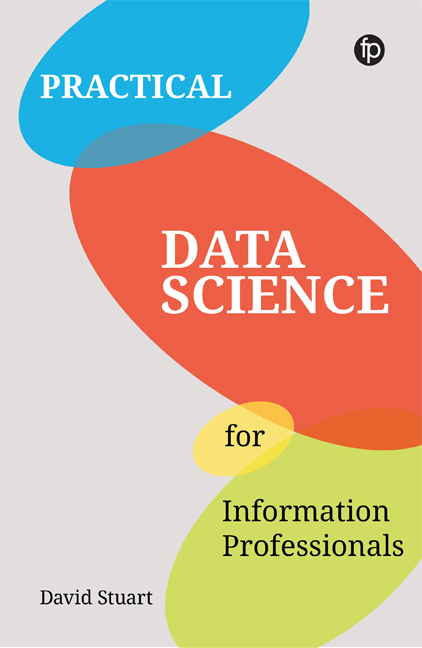Book contents
- Frontmatter
- Dedication
- Contents
- Figures
- Tables
- Boxes
- Preface
- 1 What is Data Science?
- 2 Little Data, Big Data
- 3 The Process of Data Science
- 4 Tools for Data Analysis
- 5 Clustering and Social Network Analysis
- 6 Predictions and Forecasts
- 7 Text Analysis and Mining
- 8 The Future of Data Science and Information Professionals
- References
- Appendix – Programming Concepts for Data Science
- Index
4 - Tools for Data Analysis
Published online by Cambridge University Press: 14 August 2020
- Frontmatter
- Dedication
- Contents
- Figures
- Tables
- Boxes
- Preface
- 1 What is Data Science?
- 2 Little Data, Big Data
- 3 The Process of Data Science
- 4 Tools for Data Analysis
- 5 Clustering and Social Network Analysis
- 6 Predictions and Forecasts
- 7 Text Analysis and Mining
- 8 The Future of Data Science and Information Professionals
- References
- Appendix – Programming Concepts for Data Science
- Index
Summary
The laboratory equipment of data scientists is not test tubes and microscopes, but the set of software they install on their laptop or desktop. There are ever more tools available for budding data scientists, far too many to mention in a single chapter, and more appear all the time. Following a short discussion on the problem of data scientists finding the tools they need, the rest of this chapter is split into two parts, looking at software applications and programming tools available for data science.
Novice data scientists who have little or no programming experience are likely to choose pre-packaged software when analysing data. Several data science applications are designed to enable data collection, cleaning, analysis and visualisation for non-programmers, and some notable examples are discussed in this chapter according to where they appear in the five-step data science process introduced in the previous chapter (see Figure 3.1).
There are many programming languages and software libraries producing a vast range of powerful and accessible tools for those willing to step away from the graphical user interface and expand their programming skills. Some of the main languages, libraries and integrated development environments are discussed. Access to online information and communities of practice, the development of numerous software libraries, and increased sharing of code online has made the task of programming far easier than it was even ten years ago, and no one who has reached this stage of this book should be daunted by the prospect of programming (although it is not a prerequisite for finishing the book).
Finding tools
This chapter introduces some tools available to data scientists, but it is by no means prescriptive or set in stone. It is more important that information professionals as data scientists are agile and adaptable than that they have any particular expertise in any single technology. Data scientists must be aware of the new tools and programming libraries that regularly emerge, and be willing to experiment with and explore them.
Data scientists should evaluate the suitability of the new tools for specific applications, constantly exploring and learning. This does not have to be an onerous formal activity, organising funding for trips to summer schools and workshops, but rather requires a willingness for independent learning.
- Type
- Chapter
- Information
- Practical Data Science for Information Professionals , pp. 55 - 76Publisher: FacetPrint publication year: 2020



